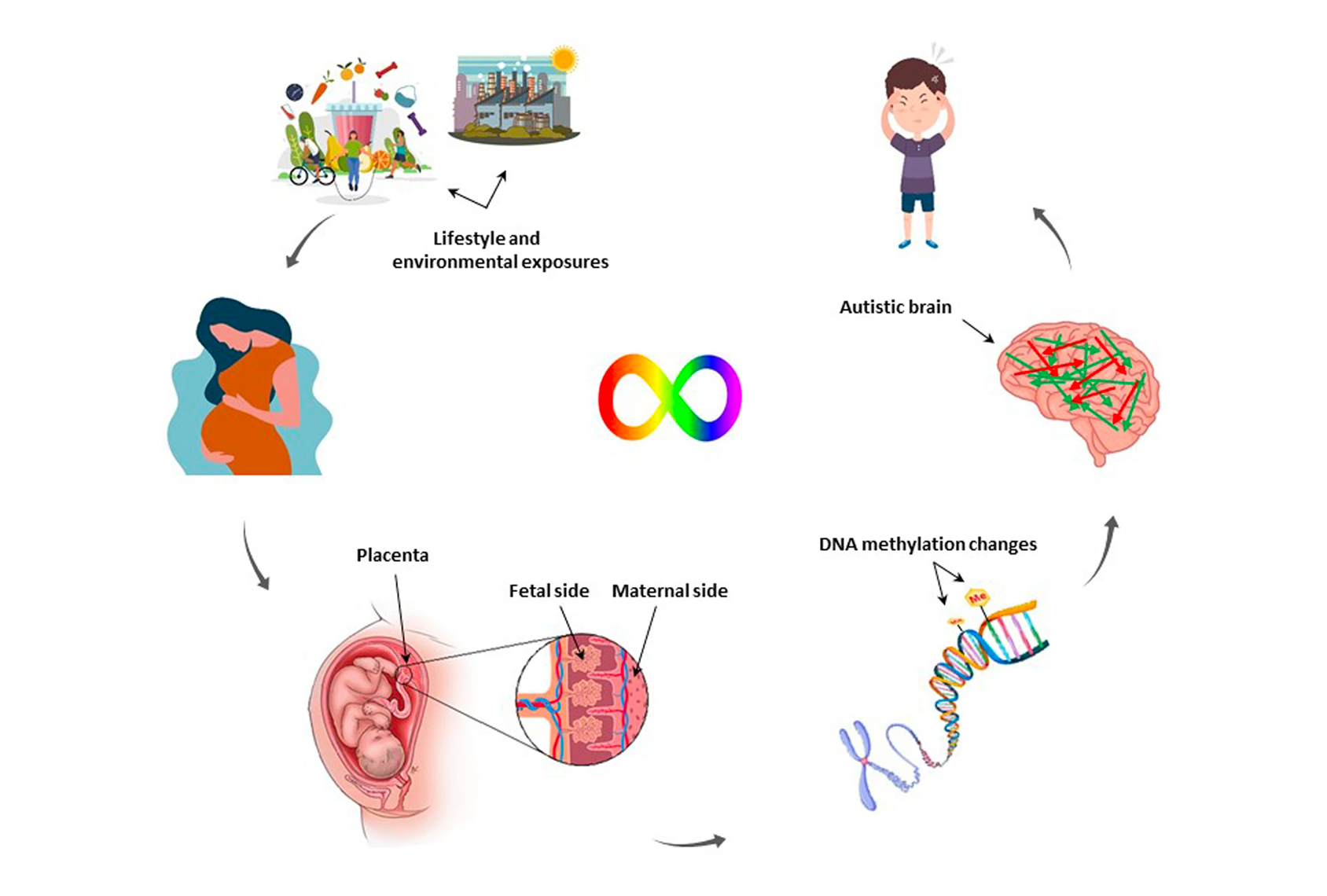Research roundup
- Birth cohorts are a valuable way to study genetic and environmental influences that contribute to autism. In 2020, Spectrum explored the idea that heritability in autism is not limited to genes. Nature Reviews Neurology
- Rett syndrome occurs in 7 out of every 100,000 girls globally, according to a review of prevalence studies. Systematic Reviews
- Poor sleep persists into adulthood in autistic people and is linked to anxiety, perceived stress and decreased physical health. Autism Research
- Autism-linked genetic syndromes, including Angelman, fragile X and Prader-Willi, tend to have distinctive profiles of autism traits. Molecular Autism
- A study of DNA methylation shows that syndromic and idiopathic autism share some gene pathways. Molecular Psychiatry
- Some 75 percent of U.K.-based general practitioners agreed that training in autism care is important, and a similar proportion reported never receiving such training, according to a survey. Canadian Journal of Education and Social Studies
- An international survey of autistic people, caregivers and criminal-justice professionals provides a basis for improving interactions between autistic people and law enforcement. Journal of Autism and Developmental Disorders
- Placenta DNA from autistic children is enriched for methylation on or near known autism-linked genes and may serve as an early biomarker of the condition. Molecular Medicine

Epigenetic go-between: Placenta DNA may mediate the link between a pregnant person’s exposure and an autistic child’s brain.
- Antipsychotic prescriptions in children and adolescents have increased over the past 20 years, according to a records review in England. The Lancet Psychiatry
- Autistic adults show no difference in stress responses whether an experimenter looks directly at their eyes or not; non-autistic people tend to have a stress response when the experimenter does not meet their gaze. Autism
- Clinicians tend to frame an autism diagnosis differently depending on a child’s age: as a deficit to be remedied in younger children and as a social and cognitive difference to be understood in older children. Sociology of Health & Illness
- Mouse models of autism rely on well-established behavioral correlates to autism traits, according to a literature review. Neuroscience & Biobehavioral Reviews
- Researchers describe a new method, called xAtlas, for identifying gene variants — single-nucleotide variants and small insertions or deletions — from sequence data. GigaScience
Science and society
- Lawmakers and advocates in Ohio continue to lobby for adding autism to the list of qualifying conditions for medical marijuana. The Columbus Dispatch
- Scientific journals are wrestling with how to handle papers generated, at least in part, by artificial intelligence chatbots such as ChatGPT. Nature
- Researchers seek to understand why autistic people have an increased likelihood of being transgender or nonbinary. Spectrum has covered the fluidity of gender identity in autism. NPR
- Some people object to using labels such as “autistic” or “bipolar” for anything but diagnosed conditions; autistic journalist Maia Szalavitz writes that broader use of these terms helps us to acknowledge the spectrum of human behavior. The New York Times
- Autistic journalist Eric Garcia writes that any news on early biomarkers of autism, usually viewed as positive progress, can be double-edged because it feeds into a narrative of fixing autistic people. MSNBC
- The Autism Science Foundation has launched a directory of research studies for families interested in participating. Autism Science Foundation
- Scientific journal editors often publish their own research in the journals they edit. Nature
- Some scientists argue that the ethical principles of animal research — replace, reduce, refine — should include a fourth “R”: repayment, which can include donations to lab animal sanctuaries. The New York Times
Cite this article: https://doi.org/10.53053/PLXE3453














